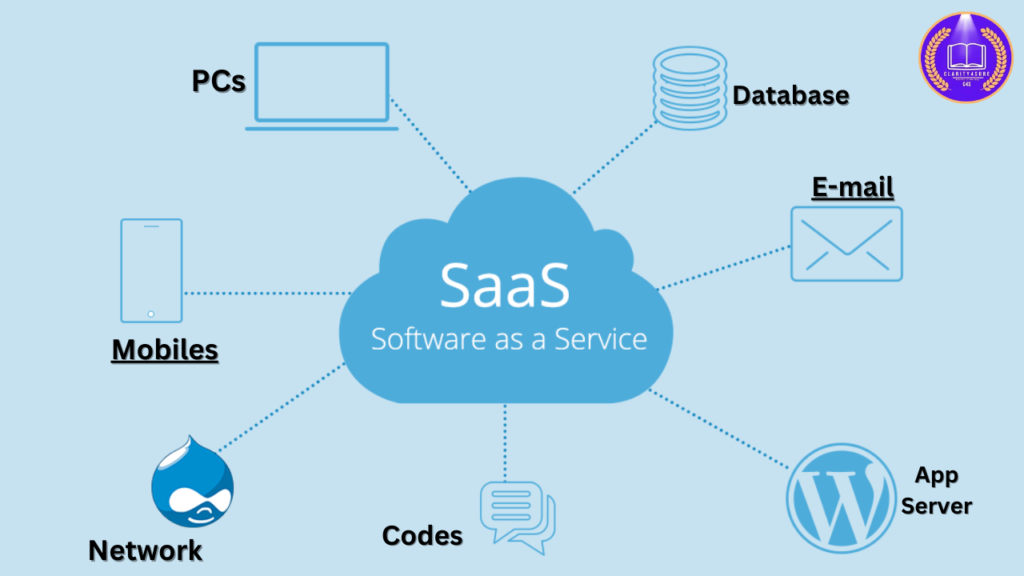Context:
Indian venture capital funding is undergoing a structural shift from pure-play SaaS (Software-as-a-Service) companies to AI-native startups, as investors prioritize scalability, automation, and deep tech innovation.
What is Software-as-a-Service (SaaS)?
Software-as-a-Service (SaaS) is a cloud-based software delivery model where applications are hosted by a service provider and made available to users via a web browser. Unlike traditional on-premises software, SaaS does not require installation, maintenance, or hardware infrastructure, as everything is managed by the vendor.
How SaaS Works ?
- Application Hosting –
- SaaS providers host applications on remote cloud servers.
- Internet Access –
- Users access the application via a web browser or dedicated app.
- Subscription Model –
- SaaS software is typically offered on a subscription basis (monthly/annually).
- Automatic Updates –
- The provider manages software updates, security patches, and maintenance.
- Scalability –
- Users can scale services up or down based on their business needs.

Benefits of SaaS
Cost Efficiency
- No need for expensive hardware or software licenses.
- Subscription-based pricing allows businesses to pay for what they use.
- Reduced IT maintenance costs, as providers handle updates and support.
Accessibility & Remote Work
- SaaS applications can be accessed from any device with an internet connection.
- Ideal for remote teams and businesses with multiple locations.
Automatic Updates & Maintenance
- Service providers manage all software updates and security patches.
- No need for manual installation or system downtime for upgrades.
Scalability & Flexibility
- Businesses can easily upgrade/downgrade their SaaS plans as per demand.
- Supports business growth without additional infrastructure costs.
Security & Compliance
- Leading SaaS providers implement high-end encryption, multi-factor authentication (MFA), and compliance certifications (GDPR, HIPAA, SOC 2, etc.) to ensure data security.
- Regular data backups prevent loss of critical information.
Seamless Integration
- SaaS applications often support API integrations with other software (e.g., CRM, ERP, accounting tools).
- Businesses can connect SaaS solutions with their existing workflows.
















